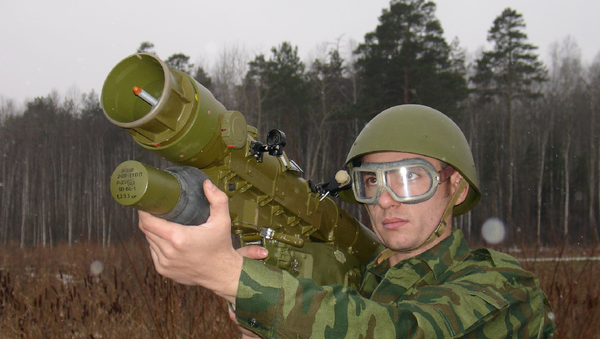At first glance, Verba looks like its Russian and American predecessors the Igla and Stinger: a tube and an aiming sight. However, at that point the similarities end.
The new MANPAD goes beyond hitting traditional targets for this type of weapon — helicopters and planes — and is capable of striking cruise missiles and unmanned aerial vehicles (UAVs, drones).
«Верба» против «Стингера»: новейший российский ПЗРК не имеет аналогов в мире http://t.co/XuIzkHU1qX #tvzvezda pic.twitter.com/SQ7DSKW0qN
— Телеканал ЗВЕЗДА (@zvezdanews) 20 июня 2015
Its surface-to-air missile (SAM) is equipped with a unique three-spectrum seeker that comprises the ultraviolet, near infrared and middle infrared bands. This variety provides more data about the target, which makes Verba a discriminate weapon. Moreover, Verba's seeker is more sensitive than that of the Igla-S, which extends the range of target engagement. The seeker automatically detects decoy heat targets and ignores them, focusing on targets with greater heat, which makes the new MANPAD extremely precise.
Verba has been tried by Russian airborne troops whose commander reported that shooting sped up more than tenfold. Earlier, it took from three to five minutes between detecting a target and firing at it; with Verba, the process narrowed to several seconds.
The system also includes a ground-based "friend-or-foe" interrogator to prevent friendly fire.
Verba has a simplified maintenance service and has proven sustainable even in harsh Arctic conditions.
The military considers Verba as a reliable defense against contemporary attack aircraft and cruise missiles.
The Russian Defense Ministry has already signed a contract on delivering the systems to the Armed Forces.




